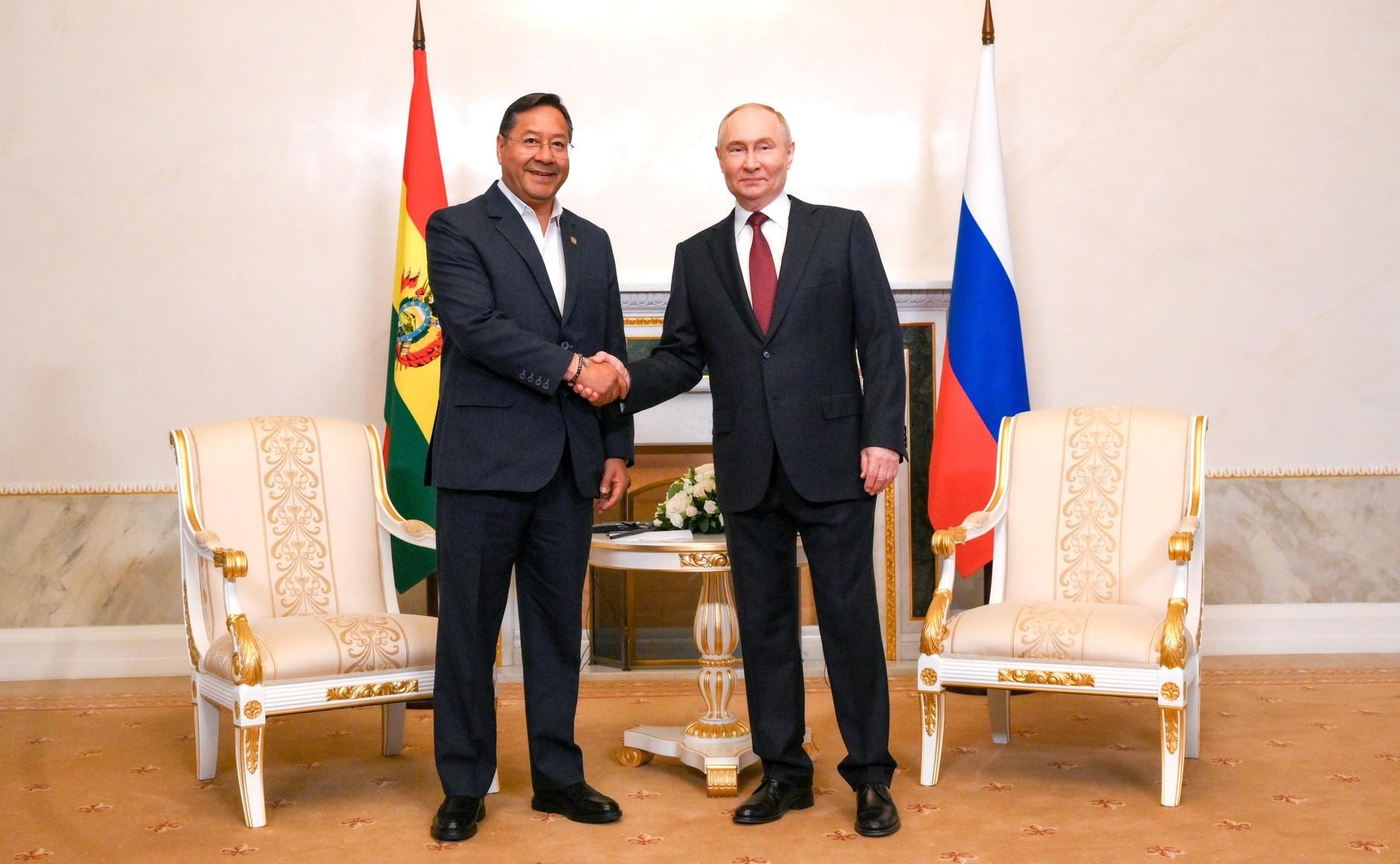
Zelenskyy Seeks a Summit With Putin Again
Zelenskyy Seeks a Summit With Putin Again
Following United States President Joseph Biden’s example, Ukrainian President Volodymyr Zelenskyy has also blinked to the Kremlin. The US president solicited a meeting with Russian President Vladimir Putin on April 13, and Zelenskyy followed suit on April 20. Both Biden and Zelenskyy believe that they need Russia’s cooperation in order to at least mitigate the challenges and threats they respectively confront: the United States globally, Ukraine vis-à-vis Russia.
The Kremlin has, since early April, deployed overwhelming military forces around Ukraine, with high publicity and dire rhetorical threats. The likely goals are political: a) extort major Ukrainian concessions in the Minsk negotiation process; b) goad Germany and France to pressure Ukraine into such concessions via the Normandy process; and c) cause the United States to downgrade Ukraine relative to other US priorities in the global package (Whitehouse.gov, Kremlin.ru, April 13) on which the Biden White House hopes to elicit Russia’s cooperation.
Moscow seems at this moment to draw within reach of those three goals without sending its forces against Ukraine across existing armistice lines or borders on land. Russia, however, has already crossed Ukraine’s borders in the Black Sea; and its latest, supplementary naval deployments have caused the United States to cancel a pre-planned naval visit to beleaguered Ukraine. The cancelation occurred on the day of Biden’s phone call to Putin, apparently correlated with it (Anadolu Agency, April 13).
That and some other unedifying Western responses to Russia’s war scare (see below) became contributory factors to Zelenskyy’s decision to try his luck and reach out to Putin. Basically, however, Zelenskyy is reverting to his instinct from day one of his presidency to deal with Putin directly. The Ukrainian president has ardently chased after summit opportunities with Putin in any format (bilateral, Normandy-quadrilateral or multilateral) for the last two years; but this latest attempt is Zelenskyy’s response to an outright war scare.
In a video address on April 20, Zelenskyy proposed that he and Putin “meet at any location in the Ukrainian Donbas where a war is ongoing.” But he did not indicate what purpose, in his view, such a meeting could serve. Referencing Putin’s own, oft-quoted rule of conduct that “one must strike first if a fight is inevitable,” Zelenskyy argued that all sides are ultimately losers in a war, that “one cannot liberate somebody by invading,” and “one cannot bring peace on tanks.” Ukraine, for its part, would never start a war. “Ukraine does not destroy other countries and peoples, but neither will it allow itself to be destroyed […] nor do we plan to run away.” Zelenskyy pronounced that “we are not afraid” at least five times.
Zelenskyy went on to urge Russia to “stop the murderous arithmetic of war casualties” and return to abiding by the ceasefire along the contact line in the east. He praised the Ukrainian army’s fighting morale and its (as he put it) modern equipment as well as Ukrainian society’s willingness to help the army. Russia’s military buildup amounts to “blackmail,” and Ukraine demands that Russia pull back its forces. US, French, German, British and Turkish leaders “are on our side […] ready to support us financially and impose increasingly severe sanctions [on Russia].” Underscoring for Russia that “we are ourselves while you are yourselves” (paraphrase of former president Leonid Kuchma’s “Ukraine is not Russia”), Zelenskyy asserted that “Ukraine and Russia have, each, its own view of the future, notwithstanding our common past” (President.gov.ua, April 20).
This address targeted three audiences: Putin, the Ukrainian public and the West. The message to Putin conveys both weakness and the moral superiority claimed by the weak versus the strong. This would do little to deter Russia. The Kremlin, moreover, knows first-hand from its Western interlocutors that Zelenskyy overstated the extent of Western support to Ukraine in his address. Ukrainian civil society’s response seems muted, two days after the delivery of the president’s address. Civil society can, however, be expected to respond with a backlash—as it has repeatedly done—if the Presidential Office ventures again into a deal to Russia’s advantage. For their part, Berlin and Paris will probably regard Zelenskyy’s praise for their solidarity as a pep talk for his domestic audience.
In fact, Berlin and Paris are currently seeking Ukraine’s acceptance of their “Clusters” peace proposals that are closely adhering to the Russian-imposed Minsk Two “agreement” (see EDM, March 30). On April 19, an extraordinary video-conference of foreign ministers of the European Union’s member countries refused to consider possible new economic sanctions on Russia as a contingency measure, to be activated in the event of a Russian military attack. Ukraine’s foreign minister, Dmytro Kuleba, participated as a guest in this conference, but his proposals went unheeded (with the probable exception of a few Central-Eastern European EU member countries) (Ukrinform, April 19). In Washington, the Biden administration (and the president himself in his April 14 press conference) has made clear that it would not use (or would waive) the available economic sanctions that could block the Russo-German Nord Stream Two gas pipeline project, notwithstanding Zelenskyy’s and Kuleba’s latest pleas to block it.
Biden and, separately, French President Emmanuel Macron (see EDM, April 19) are each seeking a summit with Putin at which Ukraine could be packaged with other issues for discussion. In these circumstances, small wonder that Zelenskyy is falling back on his earlier ambition to meet himself with Putin. Even Ukraine’s chief delegate to the Minsk Contact Group, Leonid Kravchuk, has announced that he wants to meet with Putin (presumably capitalizing on Kravchuk’s status as a former president of Ukraine) (Ukrinform, April 21). For Zelenskyy, Kravchuk, and Presidential Office chief Andrei Yermak, all out of their depth in international affairs, meeting with Putin on their own could turn into a reckless adventure.


